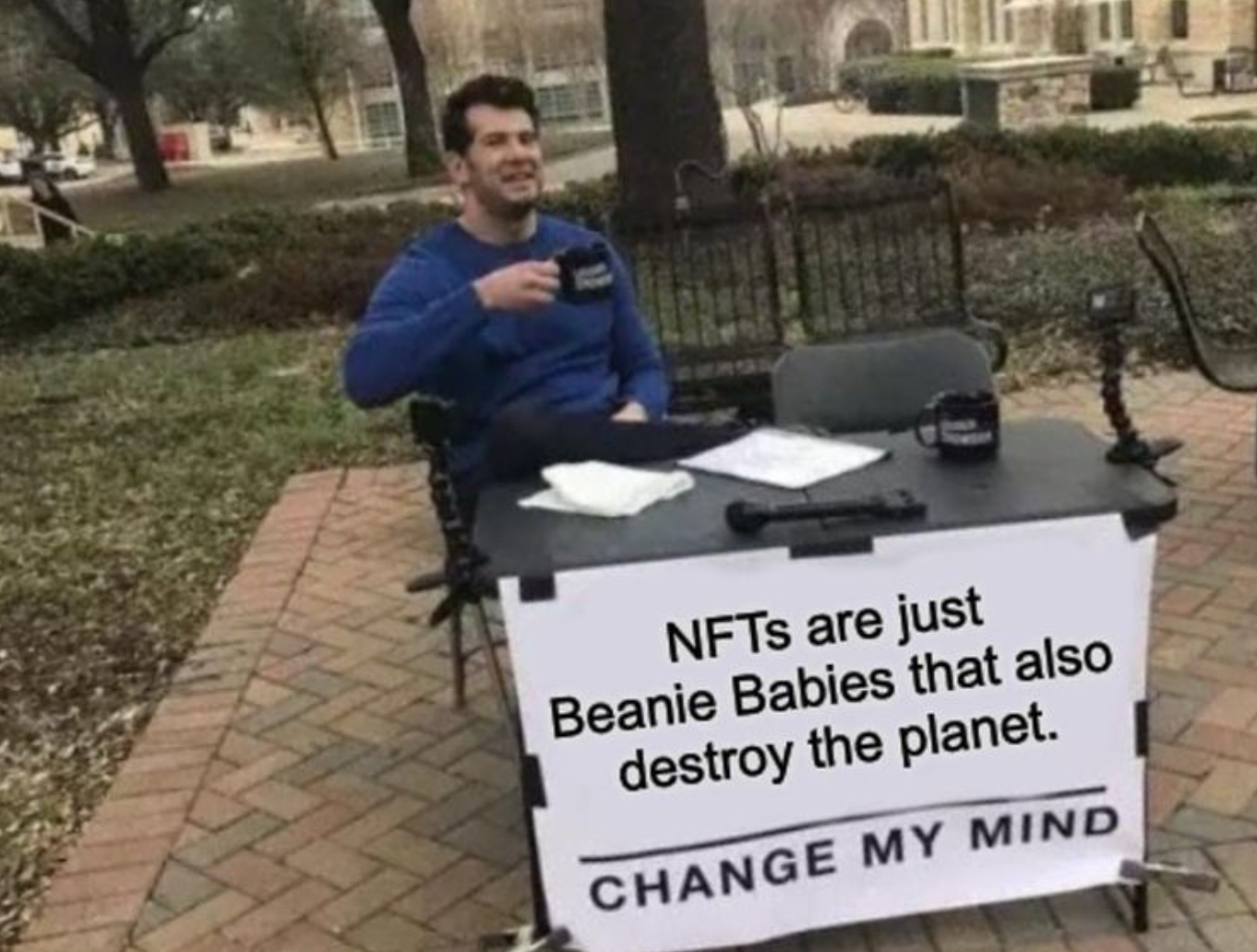
To kick things off, some orientation Chris Dixon:
Web1 (roughly 1990-2005) was about open protocols that were decentralized and community-governed. Most of the value accrued to the edges of the network — users and builders.
Web2 (roughly 2005-2020) was about siloed, centralized services run by corporations. Most of the value accrued to a handful of companies like Google, Apple, Amazon, and Facebook.
We are now at the beginning of the web3 era, which combines the decentralized, community-governed ethos of web1 with the advanced, modern functionality of web2.
Moxie Marlinspike, founder of Signal, doesn’t buy it:
“It’s early days still” is the most common refrain I see from people in the web3 space when discussing matters like these. In some ways, cryptocurrency’s failure to scale beyond relatively nascent engineering is what makes it possible to consider the days “early,” since objectively it has already been a decade or more.
However, even if this is just the beginning (and it very well might be!), I’m not sure we should consider that any consolation. I think the opposite might be true; it seems like we should take notice that from the very beginning, these technologies immediately tended towards centralization through platforms in order for them to be realized
[…]
I have only dipped my toe in the waters of web3. Looking at it through the lens of these small projects, though, I can easily see why so many people find the web3 ecosystem so neat. I don’t think it’s on a trajectory to deliver us from centralized platforms, I don’t think it will fundamentally change our relationship to technology, and I think the privacy story is already below par for the internet (which is a pretty low bar!), but I also understand why nerds like me are excited to build for it.
Corporations are excited, too! Krebs:
Norton 360, one of the most popular antivirus products on the market today, has installed a cryptocurrency mining program on its customers’ computers. Norton’s parent firm says the cloud-based service that activates the program and allows customers to profit from the scheme — in which the company keeps 15 percent of any currencies mined — is “opt-in,” meaning users have to agree to enable it. But many Norton users complain the mining program is difficult to remove, and reactions from longtime customers have ranged from unease and disbelief to, “Dude, where’s my crypto?”
Jay Peters, writing for The Verge:
S.T.A.L.K.E.R. 2: Heart of Chernobyl will no longer include NFTs, developer GSC Game World announced Thursday. The news arrives after a heavily criticized announcement Wednesday and after the studio posted and then deleted an explanation on Thursday that initially tried to explain it would, in fact, still have NFTs.
Brian Eno, who is paradoxically someone I adore despite his extreme wealth:
NFTs seem to me just a way for artists to get a little piece of the action from global capitalism, our own cute little version of financialisation.
Oscar Gonzalez, writing for CNET in August 2021:
The Digiconomist’s Bitcoin Energy Consumption Index estimated that one Bitcoin transaction takes 1,544 kWh to complete, or the equivalent of approximately 53 days of power for the average US household.
NFT’s are typically built with Ethereum in case you’d like to compare with Bitcoin. Which brings us to Everest Pipkin:
The only viable option is total moral rejection. Anything less (selling, collecting, posting links to artists selling NFTs, yes even trying to find a less ecologically devastating model) holds up the power of the worst parts of this platform. It grants moral grayzone- an “oh, if my favorite artist is involved, maybe it isn’t so bad?” or a “but I know this person cares for the environment and they participate- maybe they know something I don’t?”
[…]
However, we must get there through collective empowerment and strong social programs like universal basic income, universal healthcare, divestment from warfare and policing, a regulated real estate market that does not capitalize on housing scarcity and rent, worker unions, food programs, environmental protections, and actual, functioning income taxes on the wealthy. An individualist fantasy of a pyramid scheme, made to reward investors over artists and directly thieving from our shared future just isn’t it.
